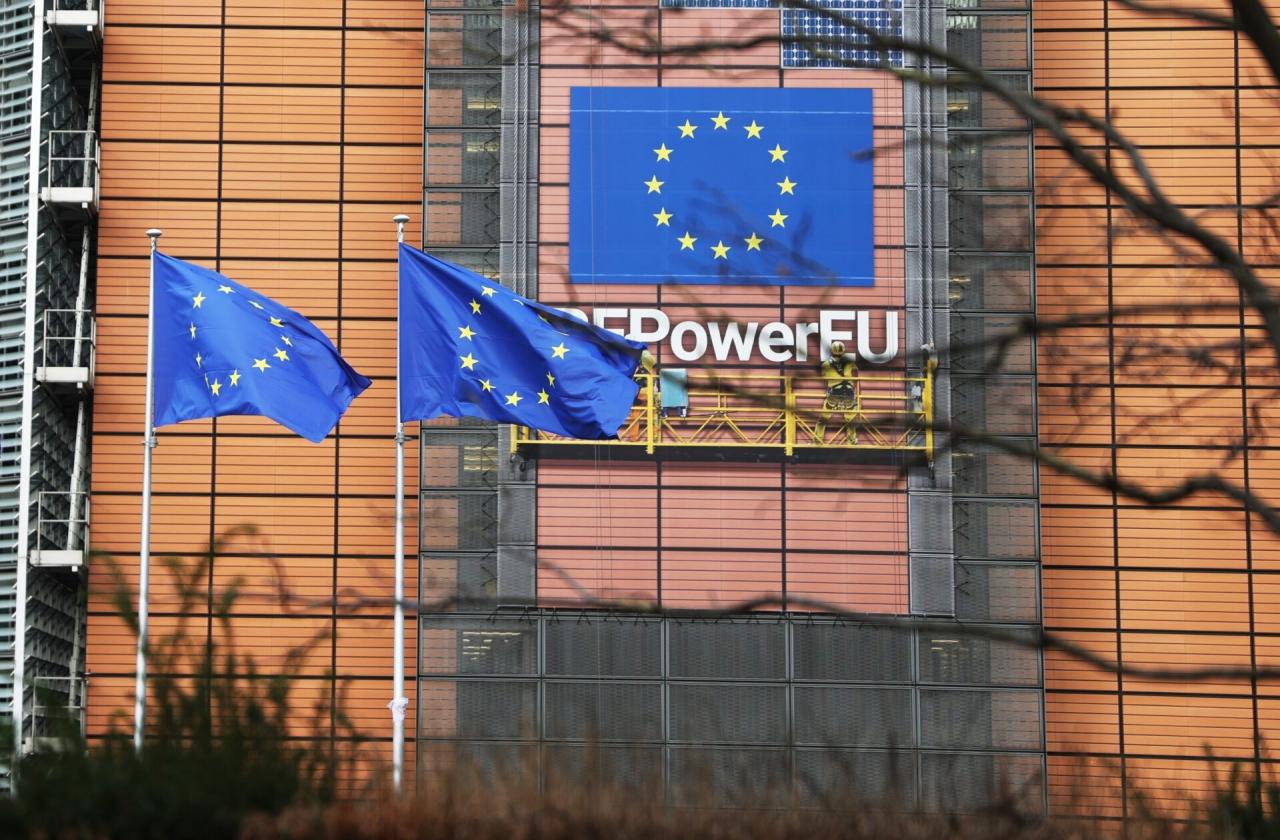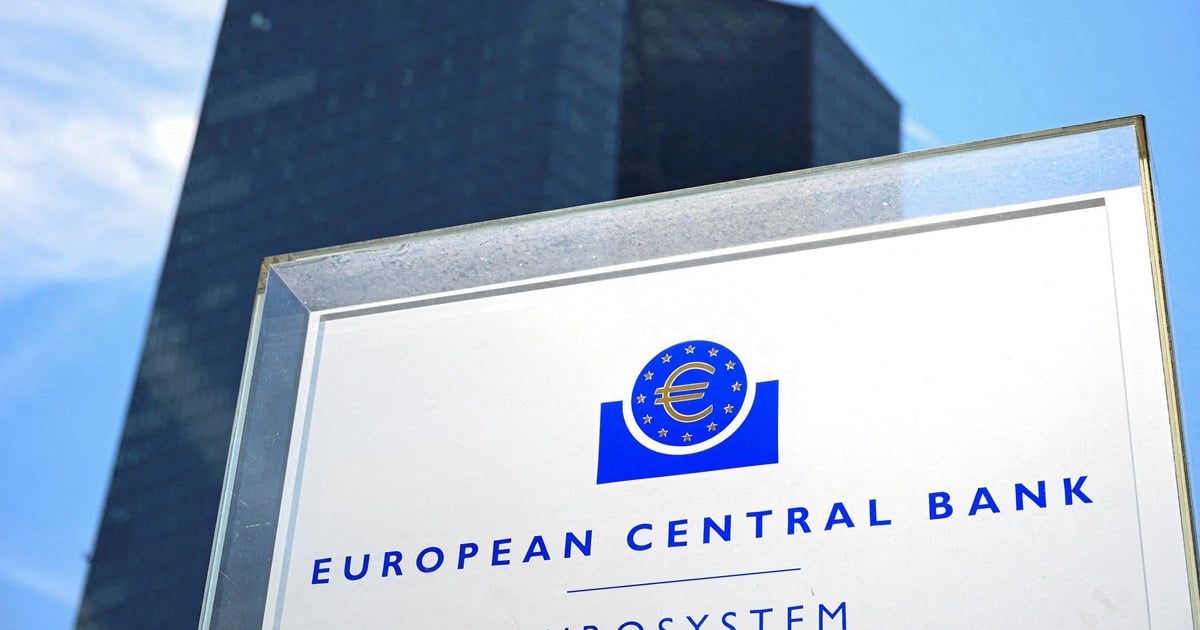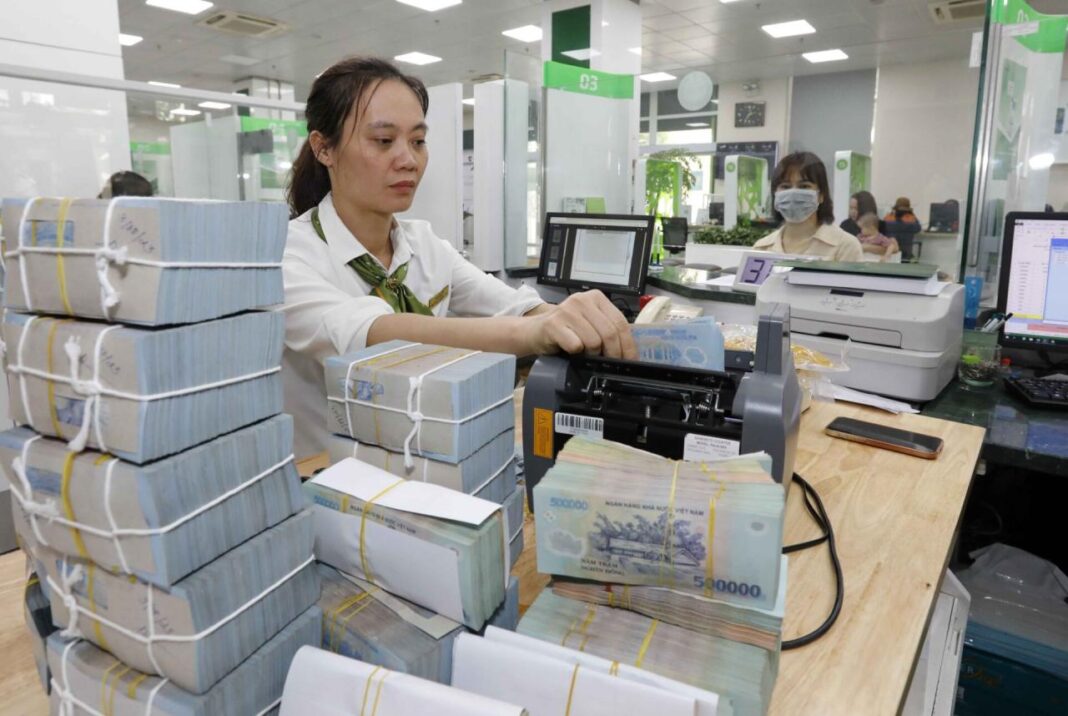The weakening of the economic engine, along with persistently high inflation and no signs that the European Central Bank (ECB) will ease monetary policy anytime soon, are casting a shadow over the economic growth prospects of the Eurozone.

European Commission (EC) building in Brussels, Belgium. Photo: THX/TTXVN
In that context, the European Commission (EC) recently lowered its Eurozone growth forecast to 0.6% in 2023, down 0.2 percentage points from the previous forecast, and to 1.2% in 2024, down 0.1 points.
Economic locomotives remain weak
The latest figures from the European statistical agency Eurostat show that the Eurozone recorded negative economic growth of 0.1% in the third quarter of 2023. Previously, the economy of the 20-nation common currency area recorded only 0.2% growth in the second quarter of 2023. This reflects the difficulties the Eurozone is facing, including a cost-of-living crisis and concerns about weak demand in the global economy.
Notably, in the third quarter of 2023, Germany - Europe's largest economy - grew by 0.1%, mainly due to the heavy impact of rising energy costs, stagnant industrial production and high interest rates. Meanwhile, France - the second largest economic power in the region - grew by only 0.1%, Italy - the third largest economy in the Eurozone - remained almost flat, and Austria recorded a decrease of 0.6%.
However, a positive sign for the Eurozone is that inflation in the region is showing signs of cooling. According to Eurostat, in October 2023, the consumer price index (CPI) in this region fell from a peak of 10.6% in October 2022 to 2.9%, the lowest since July 2021. This figure is significantly lower than the 4.3% in September 2023 and lower than analysts' forecasts, which expected inflation to remain above 3%.
On a European Union (EU) scale (including EU member states that do not use the euro), according to Eurostat, the economic situation of all 27 EU countries is brighter with growth of 0.1% in the third quarter of 2023.
“We are coming to the end of a challenging year for the EU economy, with real growth falling short of expectations,” said EU Economics Commissioner Paolo Gentiloni. “Real GDP barely grew in the first three quarters of this year and is expected to show only a “slight recovery” in the coming quarters.”
Gloomy outlook
Although the Eurozone is gradually overcoming the shocks from the COVID-19 pandemic and the Russia-Ukraine military conflict, many people are still concerned about the economic impact of the Hamas-Israel war on the region's economy. Notably, although it has decreased, inflation in the Eurozone remains high. This makes it difficult for the ECB to cut interest rates aggressively.

A store hangs a sale sign in Brussels, Belgium. Photo: THX/TTXVN
Against this backdrop, in mid-November, the EC lowered its Eurozone growth forecast for 2023 to 0.6%, down 0.2 percentage points from its previous forecast. For 2024, the EC forecasts the region's economy will grow by 1.2%, down 0.1 percentage points from its previous forecast.
Germany - the eurozone's largest economy - is forecast to contract by 0.3% this year before seeing a "moderate recovery" and growing by 0.8% next year and 1.2% in 2025, according to the EC's forecast. France - the region's second-largest economy - is expected to grow by 1.0% this year, 1.2% next year and 1.4% in 2025.
Both Europe and the United States are struggling with persistently high inflation. However, in contrast to the Eurozone gloom, the US economy is recovering strongly, with growth reaching 4.9% in the third quarter of 2023, largely due to high Eurozone inflation due to high energy prices. Eurostat forecasts Eurozone inflation of 5.6% in 2023 and 3.2% next year.
However, in the context of the complex and unpredictable world situation, the forecasts for inflation and growth in the Eurozone may change in a more negative direction. EU Economic Commissioner Gentiloni warned that global developments that could shake the world energy market - especially the case of the Israel-Hamas conflict that could spread to the Middle East - pose "downside risks". He said: "Rising geopolitical tensions have added to the uncertainty and risk clouding the (economic) outlook"./.
Mai Huong


![[Photo] Opening of the 11th Conference of the 13th Party Central Committee](https://vstatic.vietnam.vn/vietnam/resource/IMAGE/2025/4/10/f9e717b67de343d7b687cb419c0829a2)


![[Photo] April Festival in Can Tho City](https://vstatic.vietnam.vn/vietnam/resource/IMAGE/2025/4/10/bf5ae82870e648fabfbcc93a25b481ea)
![[Photo] Unique folk games at Chuong Village Festival](https://vstatic.vietnam.vn/vietnam/resource/IMAGE/2025/4/10/cff805a06fdd443b9474c017f98075a4)









































































![[Infographic] Diverse activities of the 4th Dong Thap Province Book and Reading Culture Day in 2025](https://vstatic.vietnam.vn/vietnam/resource/IMAGE/2025/4/10/a5f00b7d966a475d891f3c3e528c9a66)
















Comment (0)